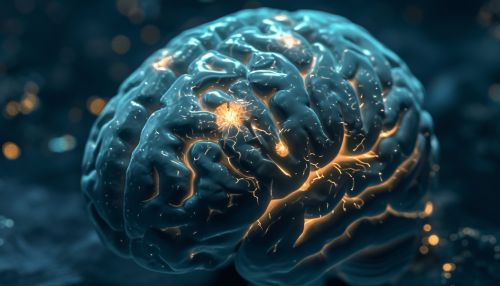Motor Planning
Introduction
Motor planning, also known as praxis, is a complex cognitive process that involves the ideation, organization, and execution of novel motor tasks. It is a critical aspect of human motor behavior and is essential for performing everyday activities, from simple tasks like picking up a pencil to complex tasks like playing a musical instrument or participating in sports.
Concept and Definition
Motor planning is a term used in neuroscience and psychology to describe the process of organizing, sequencing, and executing movement. This process involves several steps, starting with the formation of an idea or intention to perform a specific motor task, followed by the organization and sequencing of the necessary motor actions, and finally, the execution of the task itself.


The concept of motor planning is closely related to the idea of motor control, which refers to the ability to regulate and direct the mechanisms essential for movement. However, while motor control is more concerned with the physical aspects of movement, such as muscle activation and coordination, motor planning is more focused on the cognitive aspects, such as the formulation of goals and the selection of appropriate motor actions to achieve those goals.
Neurological Basis
Motor planning is a complex process that involves multiple areas of the brain. The primary motor cortex, located in the frontal lobe, is responsible for the direct control of voluntary movements. However, several other areas of the brain, including the premotor cortex, the supplementary motor area, the basal ganglia, and the cerebellum, also play crucial roles in motor planning.
The premotor cortex and the supplementary motor area are involved in the planning and preparation of movements. These areas receive information about the intended movement from the prefrontal cortex and other higher-level cognitive areas of the brain, and they send output to the primary motor cortex to initiate the movement.
The basal ganglia and the cerebellum are also critical for motor planning. The basal ganglia are involved in the selection and initiation of voluntary movements, while the cerebellum is responsible for the fine-tuning and coordination of movements.
Motor Planning Disorders
Disorders of motor planning, known as apraxia, can result from damage to the brain areas involved in motor planning. Apraxia is characterized by the inability to perform purposeful movements, despite having the physical ability and desire to perform the movements. There are several types of apraxia, including ideomotor apraxia, ideational apraxia, and constructional apraxia, each of which affects a different aspect of motor planning.
Ideomotor apraxia is characterized by the inability to perform a motor task on command, even though the individual can perform the task spontaneously. Ideational apraxia, on the other hand, is characterized by the inability to plan and sequence the steps of a complex motor task. Constructional apraxia involves difficulties with tasks that require spatial organization, such as building a structure with blocks.
Assessment and Treatment
Assessment of motor planning abilities is often performed by occupational therapists and physical therapists using a variety of standardized tests and observational methods. These assessments can help identify difficulties with motor planning and can guide the development of individualized treatment plans.
Treatment for motor planning difficulties typically involves occupational therapy or physical therapy. These therapies aim to improve motor planning skills through practice and training. Specific strategies may include task-specific training, where the individual practices the specific motor task they are having difficulty with, and motor imagery, where the individual imagines performing the task in their mind.
Conclusion
Motor planning is a complex cognitive process that is essential for the performance of everyday activities. Understanding the neurological basis of motor planning and the disorders that can affect it is crucial for the development of effective assessment and treatment strategies. While much is known about motor planning, it remains a rich area of research, with many questions still to be answered.
